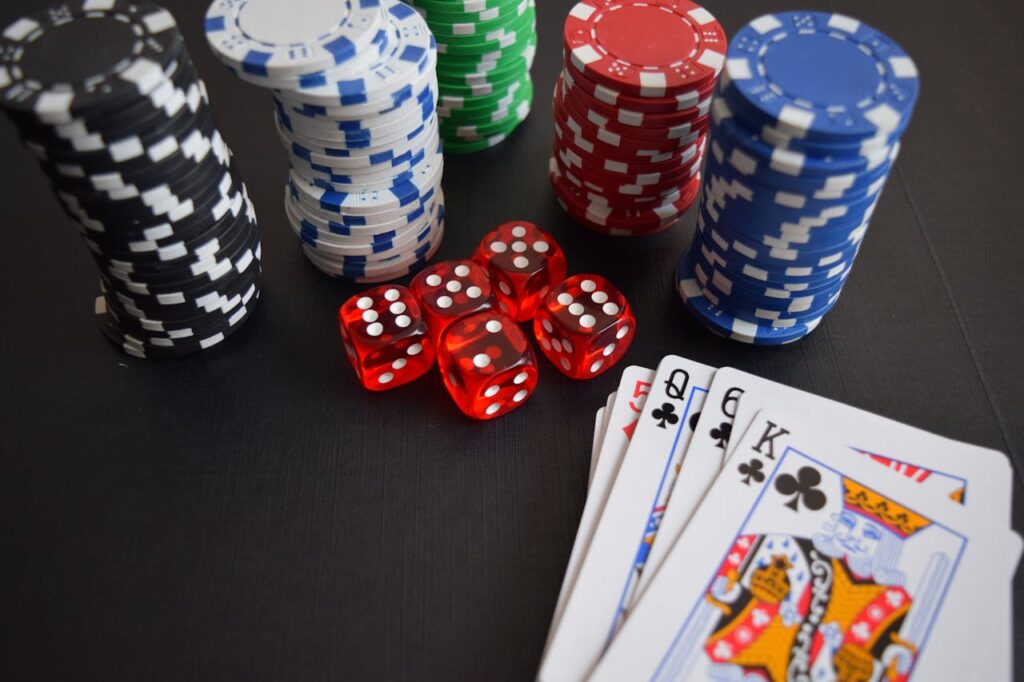
When you gamble, whether in a casino or on online platforms such as Spin Mills Casino, you often find yourself just one step away from winning. At such moments, when only one symbol is missing to hit the jackpot, many players experience a mixture of disappointment and excitement. This phenomenon may seem strange at first glance, but it is related to how our brain works and why we enjoy experiencing ‘near misses’ so much. Why are these events often more emotionally intense than actual success, and why do near misses keep us playing?
The ‘near luck’ mechanism: how the brain reacts to minor losses
When a player fails to win the grand prize, their brain activates the same centres that are responsible for positive emotions. This unusual phenomenon is called the ‘near-win effect.’ This state creates the illusion of success, even though the person has not actually won. Research shows that the brain reacts to near misses as something positive, which makes players want to repeat the experience.
Why does it work this way?
Psychologists say that playing on the verge of success activates neurotransmitters in the brain, such as dopamine, which is associated with feelings of pleasure.
And when a player sees that they have literally ‘almost’ won, their brain perceives this moment as close to victory, despite the absence of a real win. Thus, the incentive to continue playing increases because we associate “almost” with ‘success.’
The ‘almost’ effect can be seen as a mechanism that stimulates continued action by creating a false sense of being close to winning. This makes further play tempting and paves the way for repeated attempts.
Impact on player behaviour
Interestingly, the feeling of ‘almost winning’ can lead to irrational behaviour. Players, experiencing the thrill of being close to winning, may decide to continue playing in the hope that they will achieve the desired result on their next attempt. This psychological behaviour often causes them to invest even more time and money in games, which can lead to unnecessary expenses.
Biological basis: how neurotransmitters influence our decisions
The human brain is programmed to seek rewards. This mechanism is based on the work of dopamine, a substance that stimulates the reward system. When you almost win, even if you haven’t actually succeeded yet, you start to experience a rush of dopamine. This feeling is reinforced by the fact that your brain perceives the event as ‘almost a success.’
Neurobiologists explain that ‘almost’ stimuli play a key role in human behaviour. Unlike regular wins, which can become predictable and less exciting for the brain, near misses increase the thrill because the player cannot accurately predict the outcome. The emotions of ‘almost’ create an effect of uncertainty that makes the game more exciting and increases the likelihood of continuing to try.
The brain’s response to minor losses
When a person loses at gambling, it activates the same areas of the brain as when perceiving pain or stress. However, if the loss is not complete, but represents an ‘almost’ win, this effect is weakened. On the contrary, the brain may interpret it as a small step towards success, which makes continuing to play attractive.
Why can ‘almost’ be even better than winning?
At first glance, it may seem that a real win should bring more satisfaction than ‘almost’. However, in practice, players often experience stronger emotions when they fall short of winning. This is because our psyche perceives any attempt to achieve a goal as a greater achievement than the achievement itself. In other words, the very process of striving for a goal and the tension on the way to success become more exciting than the moment of victory itself.
Reasons to continue playing
Psychologists call this phenomenon ‘cognitive dissonance.’ When we do not achieve the desired result, the brain begins to work towards resolving this dissonance. Players who experience this feeling strive to restore balance, which motivates them to try again.
It is this effect that may explain why many players continue to place bets despite numerous failures. Even if a player fails to hit the jackpot, they continue to play, thinking that ‘almost’ means that next time they will definitely be lucky.
The myth of ‘almost winning’: statistics and reality
Many games are designed in such a way that near misses occur with high frequency. This creates a false sense of closeness to victory for players. When a combination appears on the screen that is just shy of the jackpot, players tend to think that a win is just around the corner. In fact, statistically, such situations are designed to keep the player playing, hoping for luck.
The role of the casino in creating the effect
Online casinos and slot machines use algorithms that regulate the frequency of near misses. This creates the ‘almost’ effect, which encourages players to believe that the next step will lead to a win. Although the games are essentially programmed so that the chances of a real win remain low, the illusion of being close to success keeps people playing.
The psychological aspect: how casinos use player behaviour
The expectation of winning, even if it does not come true, is a powerful tool for creating engagement. The seemingly insignificant ‘almost’ becomes a source of desire to continue playing, and this is part of the casino’s strategy. To this can be added the use of bright visual effects and sound signals that enhance the perception of success.
Games that use the ‘almost’ principle
Many games use this psychological trick to keep players engaged. Slots are especially popular, where combinations of symbols almost always fall short of the desired result. Examples of such games include:
- Slots with progressive jackpots
- Roulette with a large number of bets
- Lottery tickets and instant win tickets
These games are designed to make players feel like they are ‘on the verge of success,’ thus creating an addiction to continue playing.
Why players continue to play
When players experience the ‘near miss’ effect, they do not see a real loss. This provokes them to continue playing despite obvious financial losses. With each new ‘near miss,’ belief in success increases, which can lead to gambling addiction if the person is not aware of the psychological mechanisms affecting their behaviour.
Conclusion: how to recognise manipulation and control your emotions
Understanding how the ‘almost’ effect works and how it influences your behaviour helps you approach gambling more consciously. If you play games for money, it is important to remember that it is not only a matter of luck, but also psychological factors that can influence your decisions. Games are designed with these characteristics in mind, and it is important to understand how they can affect your experience and behaviour.
Do not let the ‘almost’ effect manipulate your emotions. The ability to control your impulses and be aware of the psychological impact of the game will help you avoid unnecessary losses and disappointments.


